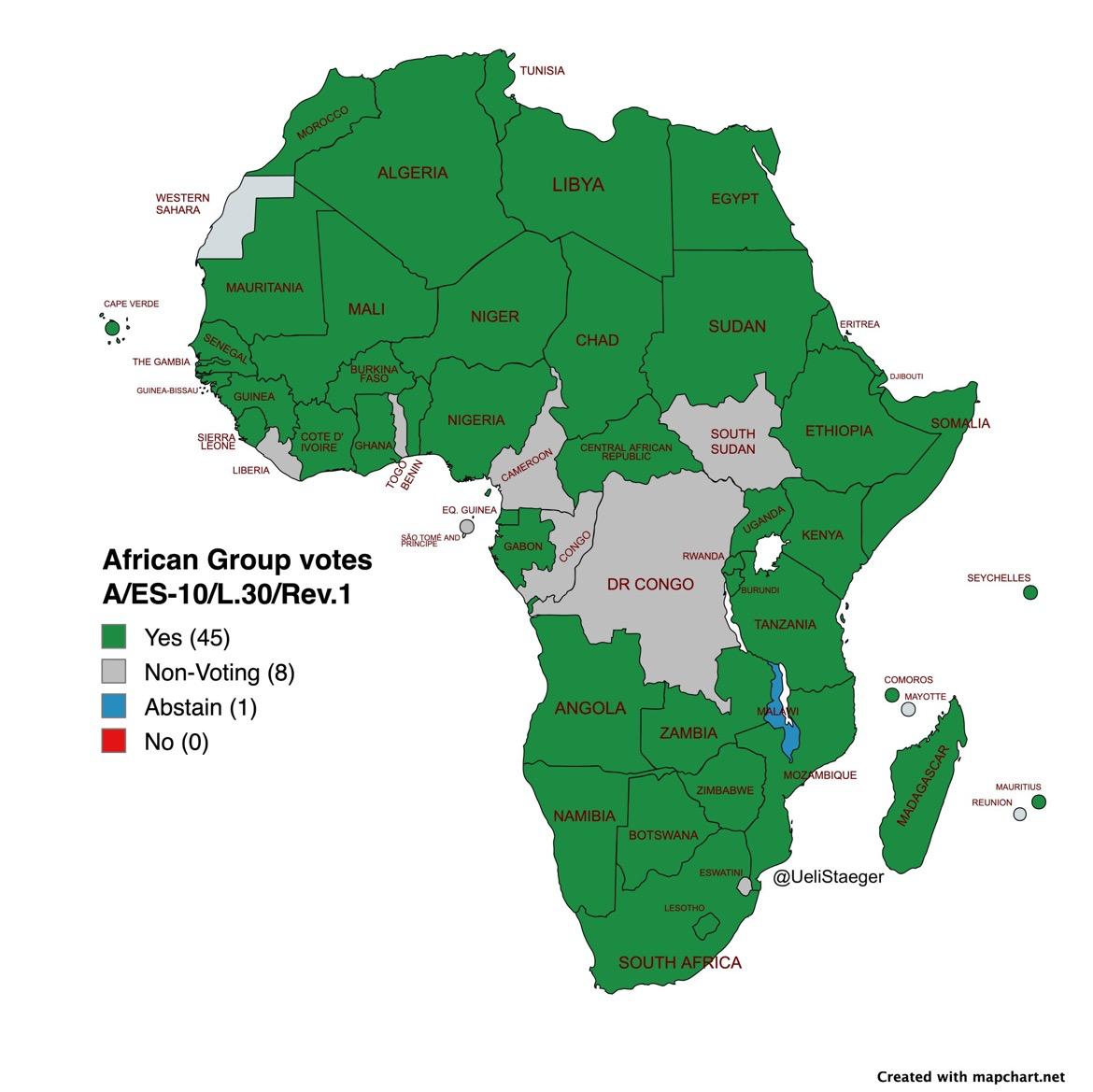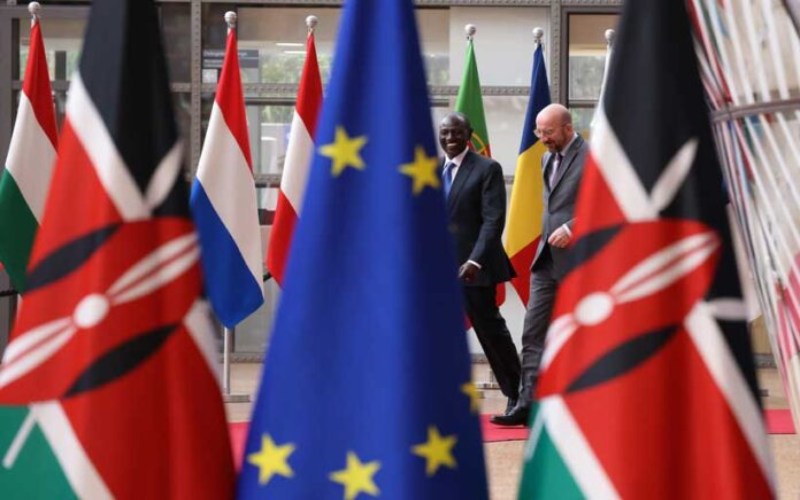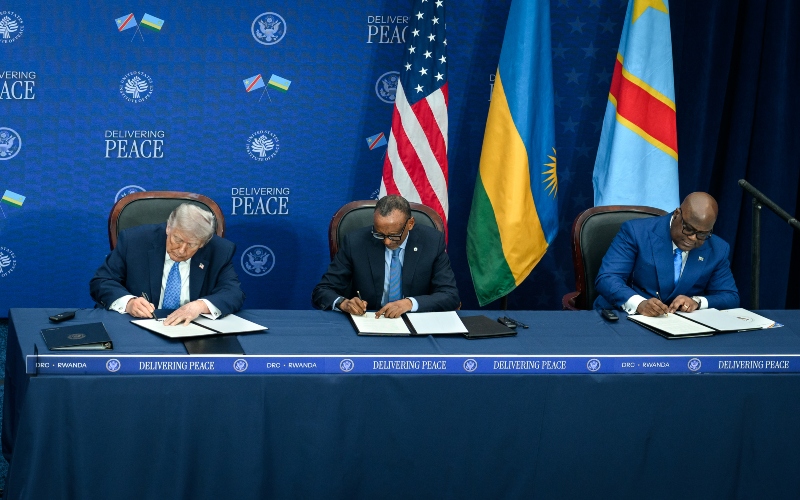Palestine's UN bid: Key reasons why Kenya voted 'yes'

In the vote, Kenya acknowledged Palestine as qualified to join the UN and urged the UN Security Council to reconsider the matter favourably.
In a historic move, Kenya voted on Friday in favour of the United Nations General Assembly resolution advocating for the State of Palestine's full membership in the UN.
Ambassador Martin Kimani delivered Kenya's Explanation of Vote, highlighting several key points, which he presented to President William Ruto:
More To Read
- Gaza’s once-growing economy nears total collapse amid war and blockade
- ‘Decisive action’ needed to end Israel-Palestine stalemate, UN warns
- Palestinian police to be trained in Egypt as Gaza rebuilds security forces
- Amputee footballers reclaim hope amid Gaza’s ruins
- Shadowy organisation flies Palestinians out of Gaza
- Gaza: Displaced Palestinians dealing with the ‘death of dignity’, warns UNICEF
Support for self-determination: Kenya has long supported the right of the Palestinian people to self-determination, drawing parallels with its struggle for independence from British colonial rule.
Kimani said, "Mr. President, Kenya has consistently backed multiple resolutions that advocate for Palestinian statehood and self-determination. Our commitment is firmly held, reflecting our belief that full membership in the UN is the foundation of any state's sovereignty and equality."
Advocacy for a two-state solution: Kenya emphasised the importance of dialogue without preconditions aimed at achieving a two-state solution, asserting that it is the only viable pathway to peace for both Israelis and Palestinians.
"We urge all states, leaders, and organisations with influence on Israeli and Palestinian leadership to make every effort to encourage and facilitate a ceasefire and the resumption of dialogue."
Call for ceasefire and dialogue: Kenya urged all states, leaders, and organisations with influence on Israeli and Palestinian leadership to facilitate a ceasefire and resume dialogue, marginalising extremists who thrive on violence.
"These efforts must begin with an immediate humanitarian ceasefire in Gaza, the unconditional release of all hostages, followed by a resumption of dialogue without preconditions aimed at realistically achieving the two-state solution."
Today @AmbMKimani delivered Kenya's Explanation of Vote on the UNGA resolution for the membership of the State of Palestine. Full statement below 👇🏾 pic.twitter.com/clsMUyqAPZ
— Permanent Mission of Kenya to the UN 🇰🇪 🇺🇳 (@KenyaMissionUN) May 11, 2024
Critique of military actions: While empathising with Israel's security concerns, Kenya condemned military actions by Israel that contravene international law and humanitarian principles, stressing the need for restraint to prevent future acts of terror.
"We condemn all military actions by Israel that are at odds with international law and international humanitarian law that have been undertaken in the past and all that will follow."
Recognition of the Palestinian Authority: Kenya recognised the Palestinian Authority as the rightful representative of the Palestinian people, signalling its commitment to engaging with legitimate leadership for the realisation of Palestinian statehood.
Adherence to the UN Charter: Ambassador Kimani concluded by underlining the importance of upholding the principles of the UN Charter and resisting the influence of power politics, advocating for a world where the most powerful adhere to lawful conduct.
He said that Kenya's vote in favour of Palestine's UN membership was a vote for the promise of the United Nations.
"The Palestinian people aspire for all facets of their governance to be sovereign and peace-loving, and to be reflected in a state that embraces the obligations of full membership, as demanded by Article 4 of the UN Charter."
In the vote, Kenya acknowledged Palestine as qualified to join the UN and urged the UN Security Council to reconsider the matter favourably.
The vote, conducted by the 193-member United Nations General Assembly, served as a global measure of support for Palestine's aspirations for statehood, following the recent US veto in the council.
The resolution, adopted by the assembly with 143 votes in favour and nine against (including the US and Israel), and with 25 abstentions, does not grant full UN membership to Palestine but recognises its eligibility to join.
This map shows how other African nations voted:
 How African countries voted on Palestine's bid to become a full UN member. (Illustration: Handout)
How African countries voted on Palestine's bid to become a full UN member. (Illustration: Handout)
Top Stories Today












































